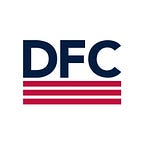At the U.N. General Assembly, DFC highlights democracy as a tool of economic growth and stability
“We may sometimes speak of democracy in abstract terms. But democracy is a powerful tool for economic growth,” DFC CEO Scott Nathan told a group of world leaders this week at the United Nations General Assembly (UNGA).
As world leaders gathered to advance solutions to widespread food insecurity and other urgent global challenges, DFC highlighted the essential role of investment in strengthening food value chains and expanding access to critical services, from healthcare to electricity.
“Businesses are more likely to work in a country where they feel confident that the rules are fair and enforceable,” Nathan said. “Investment is more likely to be successful in the long term when worker rights are respected and local communities can voice their concerns. And entrepreneurs are more likely to thrive when they have the freedom to explore their ideas and bring them to life.”
Nathan spoke alongside U.S. Secretary of State Antony Blinken, USAID Administrator Samantha Power, and leaders from many of the countries where DFC invests, at a USAID event celebrating bourgeoning democracies around the world.
During the event, Blinken recognized the important role of DFC in building public-private partnerships to help young democracies foster economic growth.
“One way that we’re able to do that in the government is through the Development Finance Corporation, which partners with the private sector to lower the risk of investment in developing countries,” Blinken said. “From my perspective one of the most important tools that we have in the United States Government on this agenda is the DFC, and I’m very proud that we’re working together so closely.”
DFC, the U.S. International Development Finance Corporation, was launched three years ago as a modern development institution, with an expanded mission to invest to in the world’s lower-income countries. Since then, DFC has made significant commitments to address climate change, expand access to healthcare, invest in modern infrastructure and technology, and strengthen global food security.
One year ago, at UNGA, DFC committed to investing $1 billion to advance food security, a global challenge that has become more severe as the war in Ukraine disrupted fertilizer shipments. During a gathering of business and nonprofit leaders this week, Nathan highlighted the progress made to date, including more than $300 million committed to projects that help small farmers access financing, adapt to climate change, and strengthen all parts of the food value chain, from production to storage and transportation.
Nathan held meetings with several heads of state, including the honorable Lazarus Chakwera, President of Malawi, who joined a signing ceremony for a DFC financing agreement to support the country’s first grid-connected solar power project with a battery energy storage system. The plant is one of many DFC investments that are generating clean energy around the world.
CEO Nathan also met with Pakistan’s Foreign Minister, Bilawal Bhutto Zardari. He expressed solidarity with Pakistan in the face of the devastating floods and underscored the long-standing relationship between DFC and Pakistan.
DFC recently committed three new transactions in Pakistan: two loan portfolio guarantees for Khushhali Bank that collectively committed $25 million and a $4.2 million loan portfolio guaranty to mobilize capital from Almavest Ltd. to Trella, a fast-growing digital trucking marketplace.
Learn more about DFC’s activities at UNGA here.
